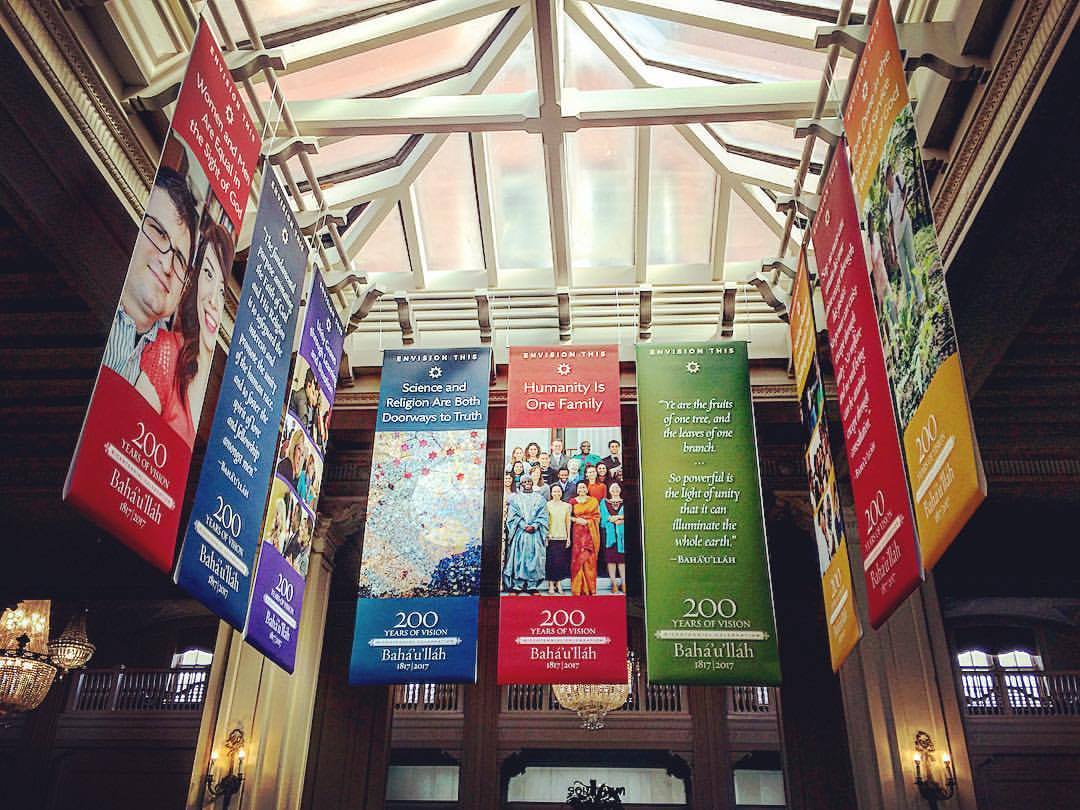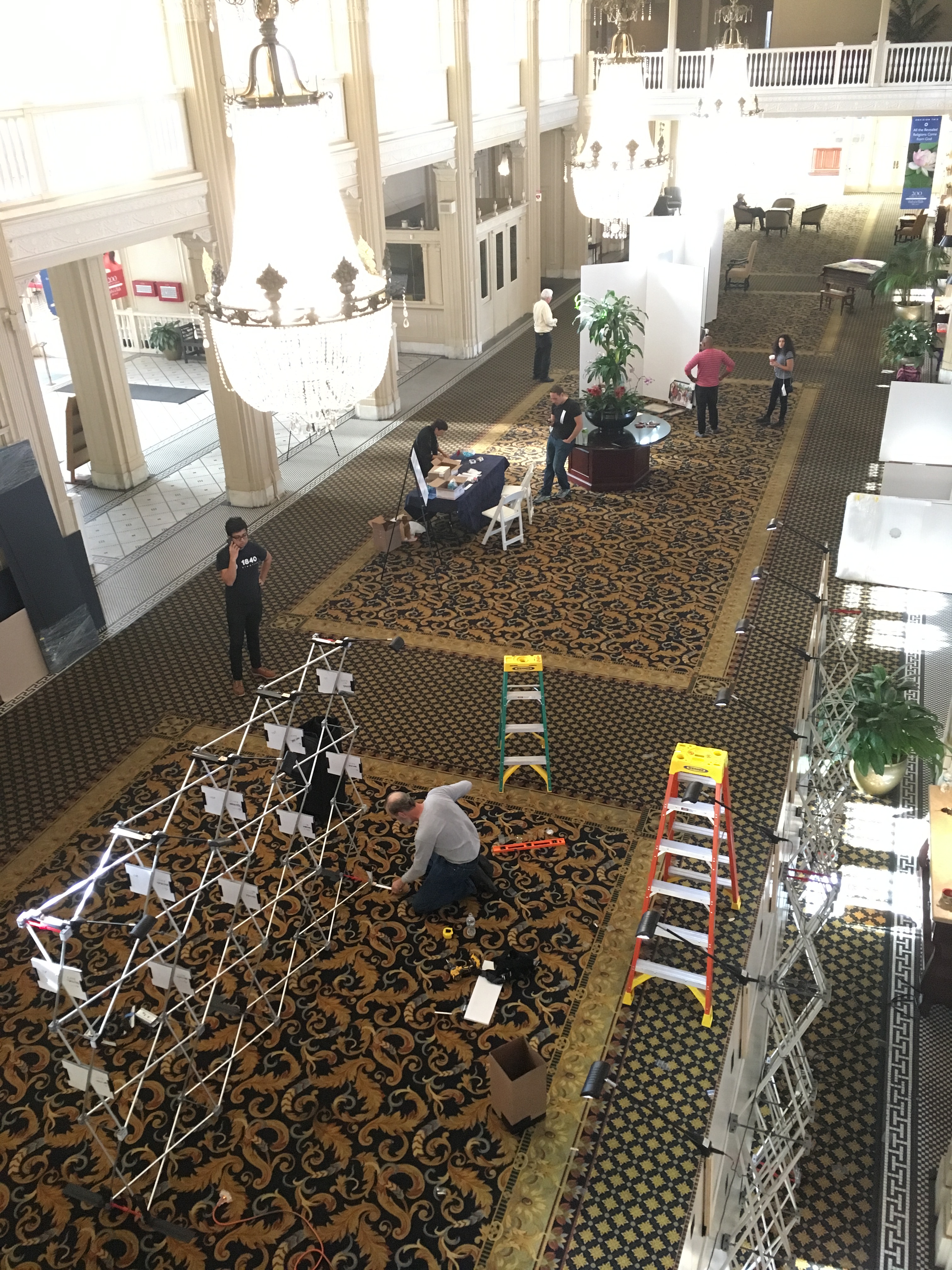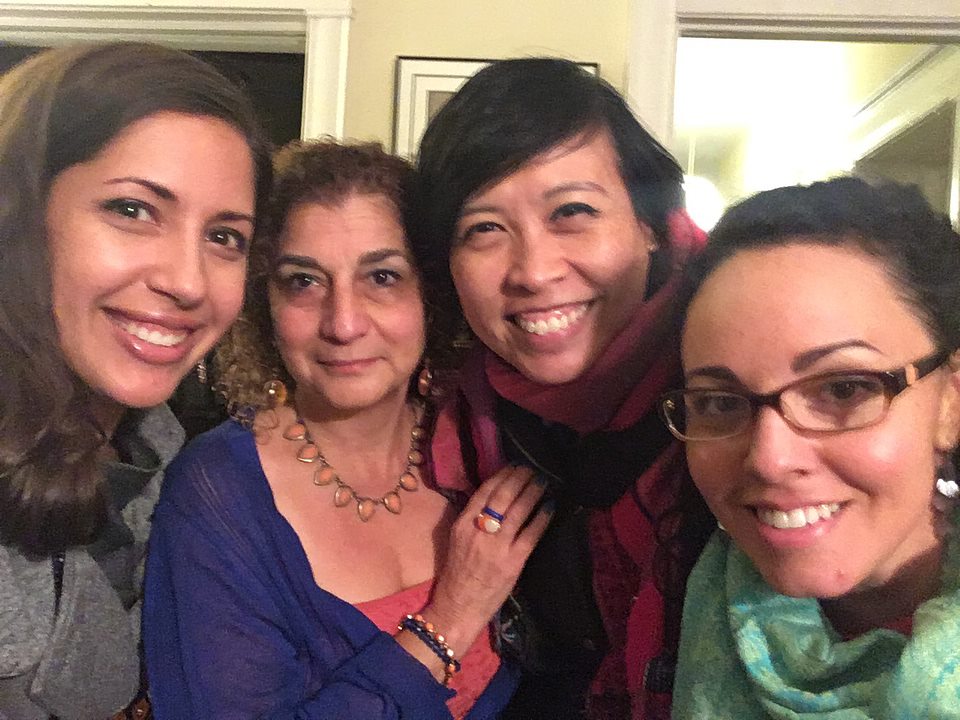 I think this is going to be a longer and more thoroughly researched post at some point, but I’ve been wanting to record these quotations somewhere for a while, because I spend a lot of time thinking about Feast, how we can improve it, and what it may evolve to be in the future. Sometimes we approach Baha’i Feasts as a boring, every 19 days obligation, rather than as a source of community, of joy, and strength. And sometimes that is because we get guilted about not attending very often, or because our Feast is boring/frustrating to attend, or we are tired and the idea of going somewhere in the cold after working all day is exhausting. But we are still in the infant stages of what the Feast will be someday. Maybe we can take ownership of changing our attitudes around Feast. As much as I love Feast, I still struggle with my own frustrations around it at times. I found the following quotations helpful as I wrestled with some of these thoughts.
I think this is going to be a longer and more thoroughly researched post at some point, but I’ve been wanting to record these quotations somewhere for a while, because I spend a lot of time thinking about Feast, how we can improve it, and what it may evolve to be in the future. Sometimes we approach Baha’i Feasts as a boring, every 19 days obligation, rather than as a source of community, of joy, and strength. And sometimes that is because we get guilted about not attending very often, or because our Feast is boring/frustrating to attend, or we are tired and the idea of going somewhere in the cold after working all day is exhausting. But we are still in the infant stages of what the Feast will be someday. Maybe we can take ownership of changing our attitudes around Feast. As much as I love Feast, I still struggle with my own frustrations around it at times. I found the following quotations helpful as I wrestled with some of these thoughts.
What is the purpose of Feast?
O thou who art steadfast in the Covenant!
Your detailed letter hath been received, but because of the press of work a brief answer must suffice. You have asked as to the Feast in every Bahá’à month. This Feast is held to foster comradeship and love, to call God to mind and supplicate Him with contrite hearts, and to encourage benevolent pursuits. That is, the friends should there dwell upon God and glorify Him, read the prayers and holy verses, and treat one another with the utmost affection and love. Should trouble arise between two of the friends, let both be invited in, and efforts be made to compose their differences. Let all discussion centre on the doing of charitable acts and holy deeds, that laudable results may be the fruit thereof.
(‘Abdu’l-Bahá, from a Tablet to an individual, translated from the Persian)
Give ye great weight to the Nineteen Day gatherings, so that on these occasions the beloved of the Lord and the handmaids of the Merciful may turn their faces toward the Kingdom, chant the communes, beseech God’s help, become joyfully enamoured each of the other, and grow in purity and holiness, and in the fear of God, and in resistance to passion and self. Thus will they separate themselves from this elemental world, and immerse themselves in the ardours of the spirit.
(‘Abdu’l-Bahá, from a Tablet to the local Spiritual Assembly of Spokane, Washington, translated from the Persian)
So there is obviously a spiritual component, but what about the food?
O ye loyal servants of the Ancient Beauty! In every cycle and dispensation, the feast hath been favoured and loved, and the spreading of a table for the lovers of God hath been considered a praiseworthy act. This is especially the case today, in this dispensation beyond compare, this most generous of ages, when it is highly acclaimed, for it is truly accounted among such gatherings as are held to worship and glorify God. Here the holy verses, the heavenly odes and laudations are intoned, and the heart is quickened, and carried from itself.
The primary intent is to kindle these stirrings of the spirit, but at the same time it follows quite naturally that those present should partake of food, so that the world of the body may mirror the spirit’s world, and flesh take on the qualities of soul; and just as the spiritual delights are here in profusion, so too the material delights.
Happy are ye, to be observing this rule, with all its mystic meanings, thus keeping the friends of God alert and heedful, and bringing them peace of mind, and joy.
(Selections from the Writings of `Abdu’l-Bahá)
I also really like the last sentence in the above selection. “…bringing them peace of mind, and joy.” If we turn Feast into a place where people feel this way, imagine the things our communities could accomplish in that environment! Also, we still don’t fully understand how important the various components of Feast are in combination…there are “mystic meanings” involved here.
Are we required to attend Feast? Why is it so important?
“Attendance at Nineteen Day Feasts is not obligatory but very important, and every believer should consider it a duty and a privilege to be present on such occasions.”
(From a letter written on behalf of the Guardian to an individual believer)
“…The main purpose of the Nineteen Day Feasts is to enable individual believers to offer any suggestion to the Local Assembly which in its turn will pass it to the National Spiritual Assembly. The Local Assembly is, therefore, the proper medium through which local Bahá’à communities can communicate with the body of the national representatives….”
(From a letter written on behalf of Shoghi Effendi to the National Spiritual Assembly of the United States and Canada)
“In reply to your letter of November 8th we feel that all friends, whatever their circumstances, should be encouraged to observe the Nineteen Day Feast.
Obviously it can only be an official administrative occasion where there is a Local Spiritual Assembly to take charge of it, present reports to the friends, and receive their recommendations. But groups, spontaneous gatherings of friends, and even isolated believers should certainly remember the day and say prayers together. In the case of a group it may well hold the Feast in the manner in which a Local Spiritual Assembly would do so, recognizing of course that it has no official administrative standing.”
(From a letter of the Universal House of Justice to the National Spiritual Assembly of the British Isles)
Alright, so we know that the Nineteen Day Feast is one of the important patterns of our community life, and it seems pretty clear that we can observe Feasts even if there are no other Baha’is nearby. In my next post I will highlight the different portions of Feast and the guidelines surrounding them.Â
Go here for Part 2!



